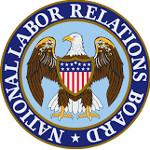Hunton & Williams LLP announces the expansion of its national labor and employment practice with the addition of partners Michele J. Beilke and Julia Y. Trankiem and two associates in Los Angeles.
“As employment laws become increasingly complex, we are focused on growing the capabilities of our national practice, especially in geographic regions that are important to our clients,” said Emily Burkhardt Vicente, co-chair of Hunton & Williams’ labor and employment group and a partner in the Los Angeles office. “Michele and Julia are exceptional lawyers who bring a wealth of experience to our already robust employment practices in Los Angeles and San Francisco. Their team’s strong commitment to client service mirrors our own, and we are excited to have them join our team in California.”
Rafael Tumanyan and Sonya Goodwin are also joining the firm as associates in the Los Angeles office. All four came to the firm from Reed Smith LLP.
Beilke has nearly two decades of experience representing employers in California. Her practice focuses on the defense of state and national wage and hour class and collective actions, and single- and multi-plaintiff discrimination and harassment claims. She also counsels and trains employers on a wide range of employment law issues, including compliance with state and federal leave laws, accommodation requirements for workers with disabilities, sexual harassment prevention and managing reductions in force. Beilke has successfully tried numerous cases to verdict in both state and federal court and in arbitration. Beilke received both her undergraduate and law degrees from the University of Southern California.
“Our experience is a perfect match for Hunton’s practice and growing footprint in Los Angeles and the San Francisco Bay area,” Beilke said. “We have all spent our careers in California litigating many of the same types of cases Hunton’s practice is known for, so we are thrilled to be part of the team here with a national platform,” Trankiem added.
Trankiem has represented employers in class, collective, representative and hybrid actions brought under the Fair Labor Standards Act and state wage and hour laws. She also has defended employers in countless single- and multi-plaintiff discrimination, harassment and retaliation claims. Trankiem advises and counsels her clients regarding every facet of the employment relationship. She is active in local and national organizations, including the California Minority Counsel Program and the National Employment Law Council. She received her undergraduate degree from University of California, Los Angeles, and her law degree from University of Michigan Law School.
“Michele’s and Julia’s practices align with Hunton’s strengths in several leading industries, including financial services, retail and consumer products, and real estate development and finance,” said Ann Marie Mortimer, managing partner of the firm’s Los Angeles office and head of the energy and environmental litigation practice.
The firm’s national labor and employment practice has successfully litigated thousands of high-profile, high-risk matters in federal and state courts, hearings before federal and state law enforcement agencies, and mediations and arbitrations. The lawyers in the group represent clients in nearly every form of traditional and emerging labor and employment disputes, concerning issues at the forefront of new employment class and collective litigation trends across the country.
 NAVEX Global will conduct its first-ever online master class when it presents “Addressing & Preventing Sexual Harassment.”
NAVEX Global will conduct its first-ever online master class when it presents “Addressing & Preventing Sexual Harassment.”




